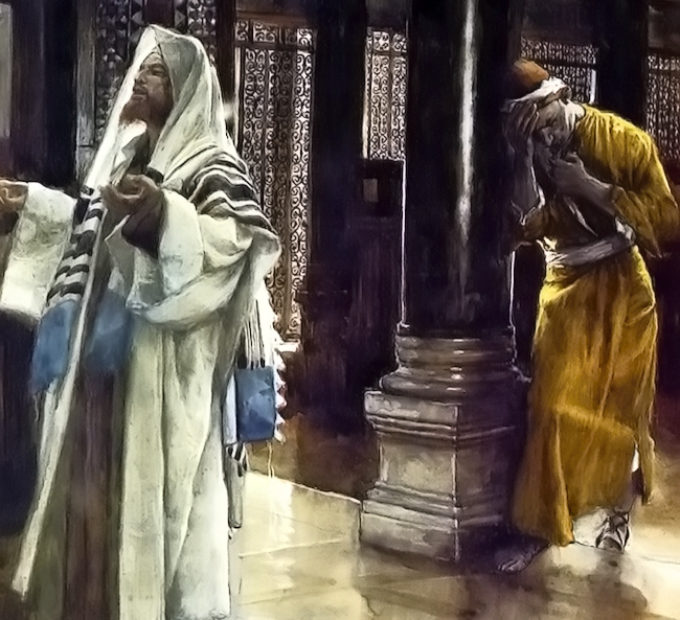May my prayer be set before you like incense. A prayer like this it’s impossible not to be heard. But our prayers – especially mines – are those which do not receive any answer. Why? Because when we pray, our mind is not there.
A pagan priest said to some monks:
“When you pray to your God, does He answers to you?”
“No”, answered the monks.
“My God answers to me.” “If He doesn’t answer to you, it means you have bad thoughts.”
“That’s quite true”, answered the monks.
Of course it was the devil who answered to that pagan priest, but these monks realized that he said the truth.
When we pray our mind is wandering to and fro and we don’t know what we say. And as long as we don’t understand, how could God understand our prayer?
That’s why when we pray it is necessary to become aware of our own sinfulness, to feel that deeply and come before God with humility and grieving heart. And when our sinfulness becomes a feeling of our heart, then the wandering of the mind ceases. This will create the disposition for a focused prayer. Then our words will have echo.
As we see at the tax collector and the Pharisee. The Pharisee prayed more than the tax collector and said: I fast, I give tithes…and all the others, but I am not like this unjust tax collector who does dishonest deeds and many other things [1]. The Pharisee considered himself an honest man, because he did apparently good deeds, he fasted, he kept vigils, he gave alms to be seen, he prayed at the corners of the streets where he lifted his arms, he washed his hands before eating and kept all the other stipulations of the Law and he imagined that according to his conscience he was in a good condition.
The tax collector didn’t pray much. What did he say? God, have mercy on me, the sinner. He didn’t say much but what had his prayer? It had something special. What was that? He admitted that he was a sinner. The tax collectors in those times were considered unjust and sinful, because they stole. So the tax collector was aware of his sinfulness. How could he raise his head and say: I give tithes from what I have, I fast twice a week or do good deeds and many others? Seeing the darkness of his unfairness and sinfulness, he fell down to earth and didn’t dare to raise his eyes, because he considered himself the last of all men, the biggest sinner. However, this bending of his neck, caused by the fact that he didn’t dare to look up, it was a prayer in itself which shook the throne of the divine mercy. And the tax collector went back home justified before God and the Pharisee, sentenced.
This humility, this bending of the head, the shame he felt, the reproof of his consciousness, all these contributed to the fact that he went home justified before God, meaning he was forgiven by God.
Especially this parable of the tax collector teaches us, enlightens our path, offers us the opportunity to muse, to see how it is listened the prayer of the one who prays. Let us examine ourselves and see: when we prayed and our mind wandered all over and we didn’t understand anything from what we said, did we feel any change inside ourselves? We felt dryness as if we hadn’t prayed at all. This was the answer we got. I knew this from practice. But when like this tax collector we pray on our knees, with tears in the eyes, with humility, with self-knowledge we can be sure that our prayers will receive answer.
[1] Luke 18, 9-14.
Excerpt from the book The Art of Salvation by archimandrite Ephrem Philoteos, to be released by Evanghelismos Publishing House.





